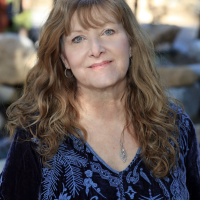
*Elephant is not your doctor or hospital. Our lawyers would say “this web site is not designed to, and should not be construed to provide medical advice, professional diagnosis, opinion or treatment to you or any other individual, and is not intended as a substitute for medical or professional care and treatment. Always consult a health professional before trying out new home therapies or changing your diet.” But we can’t afford lawyers, and you knew all that. ~ Ed.
What is intuition?
Humans have two types of intelligence: our minds, of course, but we also have intuition. In the animal world, intuition—or instinct—is a primary means of perception. Today, many cultures worldwide rely upon intuition for survival. Western culture, not so much.
Intuition is the way we know or sense things without thinking them through logically—it’s the knowledge that comes from someplace deep within. We recognize it as the gut instinct, hunch, gentle nudge, whisper, tug of the heart, the voice of the soul, the Inner Healer.
The late Dr. Wayne Dyer said it this way: “If prayer is you talking to God, then intuition is God talking to you.” Intuition is the place inside you that connects with Source, God, Creator, Spirit, the Universe, angels, or whatever you prefer to name it.
Everyone has intuition, whether you realize it and work with it or not. Intuition is your compass and navigation system—when you listen to it, trust it, and follow its lead, it will help you heal and thrive.
How does intuition speak and help us heal?
How many times have you said, “I should have listened to my instincts,” “Why didn’t I trust my gut?” or “I didn’t follow my heart.” Or perhaps you ignored a sign or synchronicity?
Your healing crisis is a crucial time to cultivate and tune in to your intuition because the stakes are higher.
Our bodies have this amazing innate ability to heal. Everything you need for the healing journey is within you. Your body knows how to heal—if you listen to your Inner Healer, aka intuition. When we allow our intuition to flourish, we become walking antennae, picking up energy and attuning to synchronicities and messages that may open doors to healing.
When a healing crisis occurs, it’s human nature to look outward for answers (doctors and other medical professionals, healers, gurus, and so on). But one of the most crucial lessons on this path is to remember to listen to yourself. If we don’t listen to our instincts, we may become confused and disoriented at a time when we’re most vulnerable. Intuition helps with wayfinding when we’re lost or blazing a new path in the uncharted territory of the healing journey.
When you look inward, quiet the noise and listen; your Inner Healer speaks wisdom. No one knows your body better than you do. Your body and soul are your best teachers. Their voice is your intuition, your Inner Healer—your compass pointed at true north. You are the healer and hero you’ve been waiting for.
Hives, nausea, fatigue, headaches, pain, panic attacks, mental imbalance, burnout, nervous breakdown. These are a few ways our bodies say no to what is not best serving our health—or worse, damaging it. It’s a wake-up call: our intuition instructs us to pay attention, do things differently, radically simplify, or just say no.
For most of us, it takes some time to understand our body’s way of getting our attention, doesn’t it? But not heeding your intuition by saying no to an activity or person who’s not in alignment with your health and happiness can come with an exorbitant cost.
What’s the cost of going out with friends when you’re feeling really bad physically? Or saying yes to an ambitious work project although you’re overwhelmed with fatigue?
What’s the price of saying yes? If it will negatively impact your health and require much recovery time, it’s seldom worth the price. Just say no. Admittedly, this is a huge challenge in the “just do it” era. But sometimes, we must say no.
We must pay attention to our inner world and process our emotions before they cause illness. Listen to your body moment by moment to solve issues of pain and process them before they explode into an unhealthy reaction that may trigger health decline.
That is one piece of the puzzle. Another is setting good boundaries (by saying no when intuition advises it) to keep suffering at bay. Setting boundaries is not selfish; it’s a key part of robust self-care.
Let’s get you started on tapping into your intuition by exploring:
>> How does your body say no? What symptoms does your body send you to signal no?
>> What situation(s) or activity(ies) might be triggering this symptom? In other words, what are you doing in your life that might not be in the best alignment, no longer serve you, or go beyond your body’s physical/mental bandwidth? What action can you take today?
>> For optimal health, what do you need more of? Think rest, sleep, hydration, healthier foods, supplements, more fun, more time for yoga, exercise, bodywork, energy healing sessions, and so on.
>> How can you radically simplify your life to support your health better? What can you say no to in order to create more space for better self-care? Simplify your life to find greater meaning. Peel away everything nonessential.
>> Do you need the help of a mental health professional in order to process negative emotions better so as not to trigger future illness or flare-up episodes?
This exercise is especially vital if you find yourself caring for others: children, grandchildren, aging parents, your business or co-workers, friends, and/or your community.
This is the beginning of healing because it means you’re on the way to identifying habits that may have led you where you are today. Listening to your Inner Healer—intuition—will help you get to the next level of healing.
The intuitive healing approach.
It’s all about trusting yourself. Don’t give your power away—not to doctors, caregivers, family, or friends. Trust you will know (or interpret) what healing modalities resonate with you. Sometimes when we’re in the company of others—even those we love—it’s difficult to hear our own small voice crying out for self-care. Make some alone time to listen to your inner voice deeply.
Taking this a step further, trust your inner wisdom to interpret your ailments’ relevance at this point in your life. The intuitive approach to healing is holistic, seeing the whole person. It doesn’t look only at vital signs or the broken leg or the one diagnosis. Seek out functional medicine and naturopathic doctors who will take a more holistic approach and work along with your intuition.
When you have a chronic illness or debilitating injury, out of pure necessity, you should first become your own nurse or physician’s assistant: monitoring setbacks, progress, and flare-ups; researching complementary approaches from reputable online resources, books, and health professionals; following your instincts about what might work for you.
Doctors will tell you that what works for one person doesn’t necessarily work for another. There’s only one you in the entire universe. Only you can know what makes sense for your body. Fully inhabit your intuition, your instincts, and your likes/dislikes. Listen to everyone (your medical team, of course), do your research, discern what feels right to you, and explore that path. That is what’s called listening to yourself first and last.
Intuition is a developed skill. It is like building muscle or learning a fun new game. It requires stillness, quiet, and athletic listening to hear the wise voice inside—and to claim your inner power. As with any skill, it’s honed and made stronger by daily practice.
Practical tips for enhancing intuition:
>> First, unplug from your devices (like sensory deprivation, it awakens your Inner Healer). Banish the to-do list. Go someplace quiet and safe where you can be alone with your thoughts: a favorite spot in nature, a special room in your house, your backyard, or a balcony.
>> Be still. Just breathe for a bit. Enjoy being in this present moment. Pay attention to how you feel and what catches your mind’s attention.
>> The more you work with your intuition, the clearer and more reliable it becomes. Ask: What would help me feel better—physically, or emotionally, right now? What’s ailing me today? What emotion am I feeling? Do I need to go out later and do X, or would rest better serve me? Do I need a nap? Exercise? Protein? Do you hear a whisper?
>> Hold space for the bigger questions: What do I need to know to heal? What interests are calling me? What would I like to learn? What would make me happier? What do I truly want for the rest of my life? What is my illness/injury relevance in my life’s path?
>> Listen. What pulls you? What speaks?
>> Write down your observations and any intuitive messages.
>> Practice this daily and throughout your day when possible. Then you’ll be ready when you’re faced with making the big decisions, like, how do I feel about the risk of this surgery? Or taking that medication?
>> Meander, following the thread of your curiosity. It’s how we find treasures hidden deep inside us.
>> Then grab your courage, dive deep, and follow your inner compass.
It’s called trusting your intuition. It’s where the magic begins. It’s where you discover what Marcel Proust wisely shared, “The real voyage of discovery consists not in seeking new landscapes, but in having new eyes.” When we “see” with the eyes of our intuition, we begin to harness our bodies’ innate healing powers.
~
Please consider Boosting our authors’ articles in their first week to help them win Elephant’s Ecosystem so they can get paid and write more.







Read 4 comments and reply